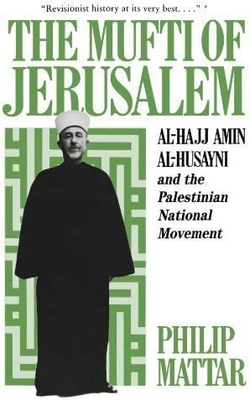 Mattar, executive director of the Institute for Palestine Studies, looks back at Amin al-Husayni (1895-1974), the leading Palestinian politician in 1921-1949, the way a Gorbachev-style Communist looks at Stalin. In each case, the latter-day sophisticate finds much to criticize in the crude efforts of the earlier leader; at the same time, a commonality of purpose softens a tough assessment, rendering the effort fundamentally sympathetic. The most egregious instance of this transcendence is the frontispiece, a tender oil painting of Husayni rendered by the author's brother.
Mattar, executive director of the Institute for Palestine Studies, looks back at Amin al-Husayni (1895-1974), the leading Palestinian politician in 1921-1949, the way a Gorbachev-style Communist looks at Stalin. In each case, the latter-day sophisticate finds much to criticize in the crude efforts of the earlier leader; at the same time, a commonality of purpose softens a tough assessment, rendering the effort fundamentally sympathetic. The most egregious instance of this transcendence is the frontispiece, a tender oil painting of Husayni rendered by the author's brother.
This dubious ideological premise notwithstanding, Mattar has done solid research and boiled it down into a readable and informative account. He sees Husayni's career dividing into two distinct phases: the Palestine phase (1917-1936), marked by caution and cooperation with the British authorities; and the exile phase (after 1936), marked by "bitterness, inflexibility, and political alliances of dubious value." Mattar then argues that Husayni was too much the accommodating politician during the first phase, too much the extremist ideologue in the second—and that both these errors "contributed to the ultimate defeat of the Palestinians."
Mattar's critical biography suggests that the Palestinian establishment is finally willing publicly to hold its founder to account for getting it on the wrong track. As with the corresponding Soviet debate about history, this may portend a more honest and realistic policy in the future.